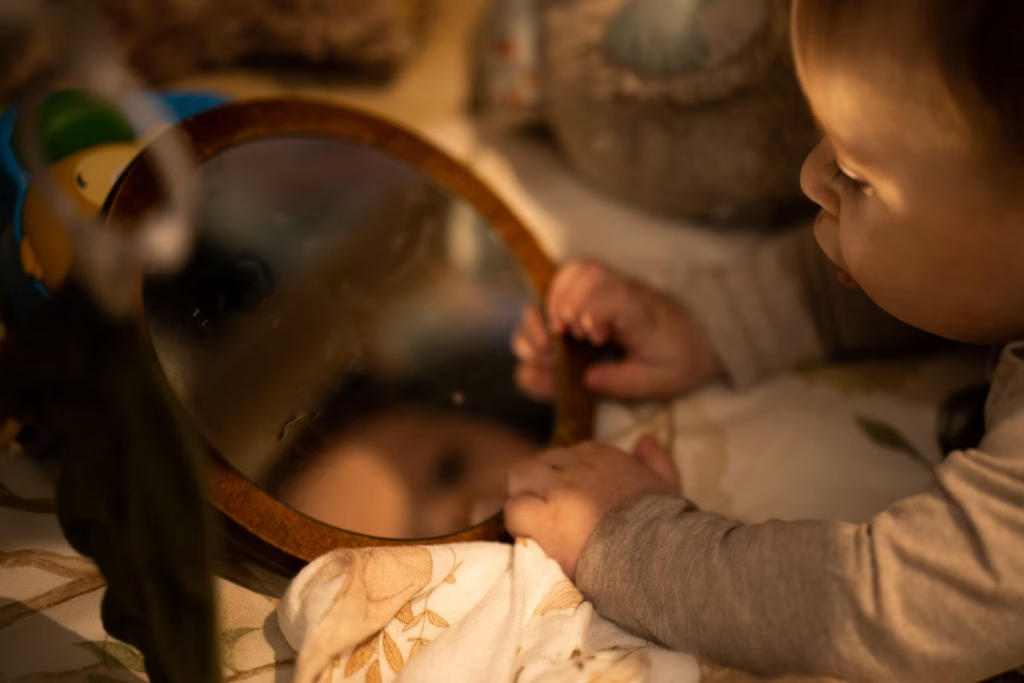
There’s a moment many parents know too well: your child is melting down over their snacks, and suddenly, your anger rises like a tidal wave. You’re not just frustrated—you’re activated, deeply. This isn’t just about the crackers. It’s something older, more familiar, and it might not even belong to them. These intense reactions often point to something deeper: your childhood wounds, resurfacing through parenting.
While this can feel unsettling, there’s also incredible power in noticing it. Because once you’re aware, you can begin healing—not only for yourself, but also for your child.
Parenting Has a Way of Uncovering the Past
Parenthood is like a mirror—reflecting not just our love and joy, but also our old fears and unmet needs. Many of us grew up in environments where emotions were dismissed, boundaries ignored, or voices silenced. These experiences don’t simply fade when we become parents; instead, they color how we communicate, discipline, or handle stress.
Childhood wounds can shape our parenting style, especially around emotional expression, limit-setting, or conflict resolution. In this way, parenting triggers draw us back to old patterns we didn’t realize we still carried.
Intense Emotions Can Signal Unresolved Wounds
Sure, everyone gets annoyed at times. But when your frustration balloons into outright rage or panic, it could be your nervous system responding to something beyond the current scenario. These triggers typically stem from unresolved childhood experiences—maybe your child’s defiance echoes times you felt unheard as a kid, or their meltdown reawakens a sense of powerlessness you once had. Recognizing these strong reactions is an essential step in becoming a more conscious, present parent.
Common Parenting Triggers You Might Not Recognize
Many triggers revolve around behaviors that feel like “too much”—too loud, too clingy, too defiant. Frequent culprits include tantrums, whining, or crying, and moments that seem out of control. For some parents, these behaviors awaken deeper feelings of rejection, helplessness, or not being “good enough,” mirroring times their own emotional needs went unmet. Identifying which specific situations heighten your stress can help you better understand and manage your parenting triggers.
How Past Trauma Can Complicate Parenting
For individuals who’ve experienced emotional, physical, or neglectful trauma, raising kids can bring those memories to the surface. You might feel anxious, overly controlling, or disconnected, often without understanding why. The past can quietly color your present interactions—unless you shine a light on them. That said, parenting also presents chances to heal through empathy, connection, and reworking old stories. With awareness and support, many parents discover renewed purpose and self-worth in the process.

Self-Reflection Is a Parenting Superpower
One of the most impactful steps you can take is to pause and reflect before reacting. When a trigger hits, ask yourself, “What does this remind me of from my own childhood?” Although challenging, this type of introspection fosters emotional awareness and resilience.
Studies show that reflective parenting not only helps you manage your own responses but also strengthens the parent-child bond. The goal isn’t perfection—it’s about being fully present, learning, and growing alongside your child.
Healing Starts with Recognition and Small Shifts
Simply naming your triggers can begin the healing process. Notice when your shoulders tense or your voice starts to rise. Take a literal breath before speaking—creating that small gap for empathy and choice. You might also find journaling, therapy, or mindfulness practices beneficial in working through deeper emotional baggage. Over time, your interactions can shift from reflexive to reflective, fostering a kinder emotional environment for you and your child.If you need more structured guidance, BetterUp’s resources on emotional well-being can offer practical tools for self-awareness and coping strategies.
You’re Not Failing—You’re Growing
Noticing old wounds doesn’t mean you’re failing at parenting—it means you’re human, and you care enough to heal. These episodes aren’t proof you’re “bad”; they’re signs you can learn to respond differently for the sake of your family. Choosing to break old cycles and lean into awareness may not have been modeled in your own upbringing, but each small step toward understanding shapes a healthier future where love and empathy take precedence over old pain.
Which parenting triggers resonate for you? Share in the comments—we’d love to know how you’re navigating them with compassion.
Read More
- From Mean to Queen: 11 Secrets to Being a Happier Calmer Mom
- How to Build a Strong Bond With Your Child Through Communication

Samantha Warren is a holistic marketing strategist with 8+ years of experience partnering with startups, Fortune 500 companies, and everything in between. With an entrepreneurial mindset, she excels at shaping brand narratives through data-driven, creative content. When she’s not working, Samantha loves to travel and draws inspiration from her trips to Thailand, Spain, Costa Rica, and beyond.
Leave a Reply